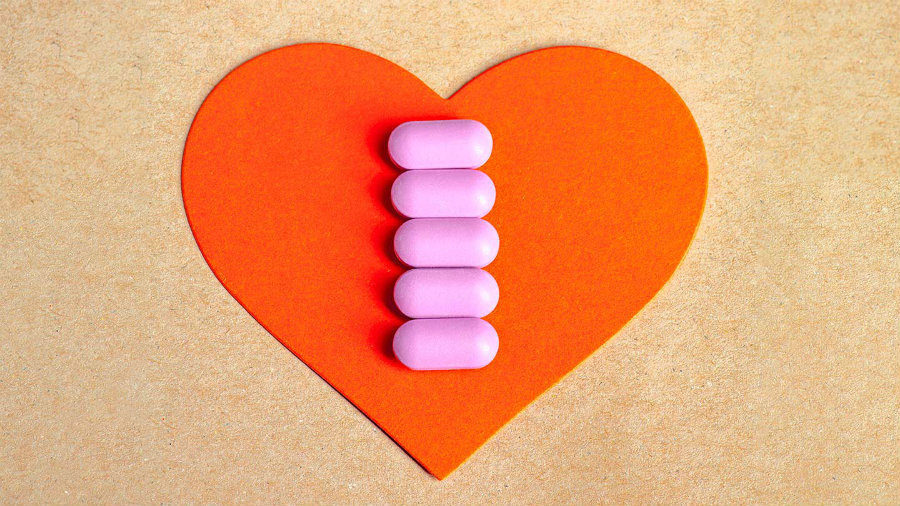A new study shows that the benefits and harms of statins are significantly underestimated, being incredibly efficient for controlling cholesterol safely and efficiently. Drugs that contain the word “statin” such as atorvastatin are included in the review.
Statins are commonly prescribed to over 70 million adults in the U.S. It was first believed that the drug could cause a stroke, weakness, and diabetes, but in reality, statins reduce the risk of suffering heart attacks, strokes and having to be submitted to coronary bypass procedures by 25 percent.

The statins are a class of drugs that often get prescribed to people that need to lower their cholesterol levels. High cholesterol causes fatty deposits in the patient’s blood vessels, making it difficult for blood to circulate efficiently through the body’s arteries. This means that there is a reduced amount of oxygen being transmitted on the blood flow, thus increasing the risk of suffering a heart attack or a stroke. Unhealthy cholesterol levels are usually the result of an inadequate diet and lack of exercise.
Since statins are so common in the reduction of high cholesterol, randomized controlled trials were held to determine the benefits and limitations of statins treatment. The review showed that out of 10,000 patients taking 40mg of atorvastatin on a daily basis 1,000 who had suffered from heart conditions were prevented from suffering heart attacks and strokes.
Using statin therapy reduces LDL cholesterol, and the review suggests that each one mmol/L of reduced cholesterol means preventing 1 out of 5 patients of suffering heart attacks, strokes or having to undergo coronary bypass procedures.
But statins do have some side effects, and the review presented them responsibly. Out of 10,000 patients, statins were the probable cause of at least five cases of myopathy, ten hemorrhagic strokes, and 100 cases of diabetes and muscle pain.
Physicians argue that, in comparison, the benefits of using statins easily outweigh the harms. Although some suggest that statins have many other side effects such as liver disease, kidney injury, cataracts, and erectile dysfunction, there is not enough evidence to prove so. According to Liam Smeeth, the president of the Department of Non-Communicable Disease Epidemiology, this latest review is the”best available scientific evidence” sponsoring statins as an effective drug class to combat high cholesterol whose side-effects are opaqued by its benefits, as it helps fight heart disease, the leading cause of death worldwide.
In the U.K., 80,000 heart attacks could be prevented by the prescription of atorvastatin to patients with high cholesterol levels.
A standard treatment to combat high blood cholesterol
Statins are usually prescribed alongside other recommendations to lower cholesterol and to strengthen the body’s defenses against heart conditions. A healthy diet, exercise and reducing alcohol and cigarette intake are usually among the behaviors prescribed by doctors to someone whose cholesterol is way too high.
Statin blocks the liver enzyme that produces cholesterol, the responsible for clogging arteries and making them hard and narrow. If this occurs, blood clots get formed, and a heart attack or stroke is imminent. Patients are advised to contact their doctor if they experience joint or muscle pain while taking statins, while pregnant women and people with liver disease should not take the drug at all.
LDL cholesterol is known as the “bad” type of cholesterol. HDL, on the other hand, is the “good” cholesterol, able to clear bad cholesterol from the blood flow. Physicians recommend people with high LDL cholesterol levels to keep an eye on their food portions. Eating a palm’s worth of food tends to be enough for eating food that will raise bad cholesterol levels, such as meat and chicken.
Eating a lot of fruits and vegetables throughout the day is a surefire way to reduce the LDL cholesterol levels. Vegetables have antioxidants and fiber, which help the body get rid of waste product and allows it to function correctly. Eating many fruits and vegetables with little condiments is also a great way to losing weight and managing high blood pressure, which when paired up with high cholesterol, can be considered lethal.
Patients are also advised to eat a much greater amount of beneficial fats, such as Omega-3, which also helps lower triglycerides in the blood. Eating fatty fish such as tuna, salmon, and sardines in any other way that it’s not fried is an excellent method to have a healthy intake of protein and at the same time reducing bad cholesterol.
Grains are also quite important to get rid of excess LDL cholesterol. Oatmeal and other whole grains are perfect for breakfast and as food for in-between meals. Almonds, walnuts, and most nuts are high in simple fats, which in part also help to lower bad cholesterol. Eating a healthy portion of nuts and grains each day has been proved to effectively reduce patient’s risk of developing heart disease, especially when paired up with the right medication.
Source: The Lancet
